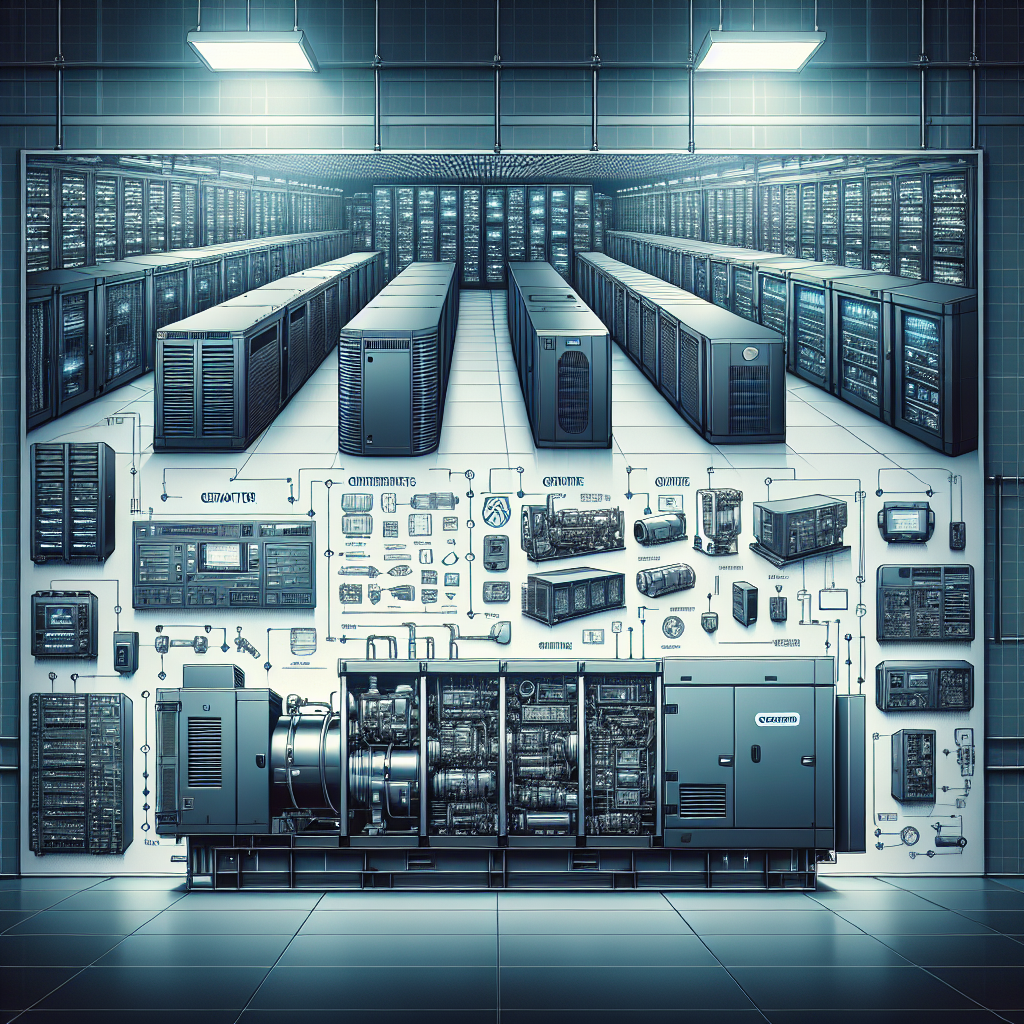Your cart is currently empty!
Comparing Different Types of Data Center Generators

Data centers are essential for storing and managing large amounts of data for businesses and organizations. To ensure uninterrupted operations, data centers rely on backup power sources like generators in case of power outages. There are different types of data center generators available on the market, each with its own advantages and disadvantages. In this article, we will compare the different types of data center generators to help you make an informed decision for your data center.
Diesel Generators:
Diesel generators are the most commonly used type of generator in data centers. They are reliable, efficient, and cost-effective. Diesel generators are capable of providing a continuous power supply for an extended period of time, making them suitable for data centers that require uninterrupted operations.
Advantages of diesel generators include:
– Higher fuel efficiency compared to other types of generators
– Lower maintenance costs
– Longer lifespan
– Quick start-up time
However, diesel generators can be noisy and produce emissions that may not be environmentally friendly. They also require regular maintenance to ensure optimal performance.
Natural Gas Generators:
Natural gas generators are another popular choice for data centers. They are cleaner and more environmentally friendly than diesel generators, making them a preferred option for companies that prioritize sustainability.
Advantages of natural gas generators include:
– Lower emissions
– Quieter operation
– Lower fuel costs
– Quick start-up time
However, natural gas generators are less efficient than diesel generators and may not be suitable for data centers that require high power output. They also require a constant supply of natural gas, which may not be readily available in some areas.
Hybrid Generators:
Hybrid generators combine the benefits of both diesel and natural gas generators. They use a combination of diesel and natural gas to power the generator, offering a more flexible and efficient power solution for data centers.
Advantages of hybrid generators include:
– Reduced emissions
– Lower fuel costs
– More flexible power options
– Higher efficiency
However, hybrid generators may be more complex to operate and maintain compared to traditional diesel or natural gas generators. They also require a reliable source of both diesel and natural gas to ensure uninterrupted power supply.
In conclusion, choosing the right type of generator for your data center depends on your specific needs and priorities. Diesel generators are reliable and cost-effective, natural gas generators are cleaner and more environmentally friendly, and hybrid generators offer a balance between the two. Consider factors such as power output, fuel efficiency, emissions, and maintenance requirements when selecting a generator for your data center. By comparing the different types of data center generators, you can make an informed decision that meets the power needs of your data center while staying within your budget and sustainability goals.

Leave a Reply